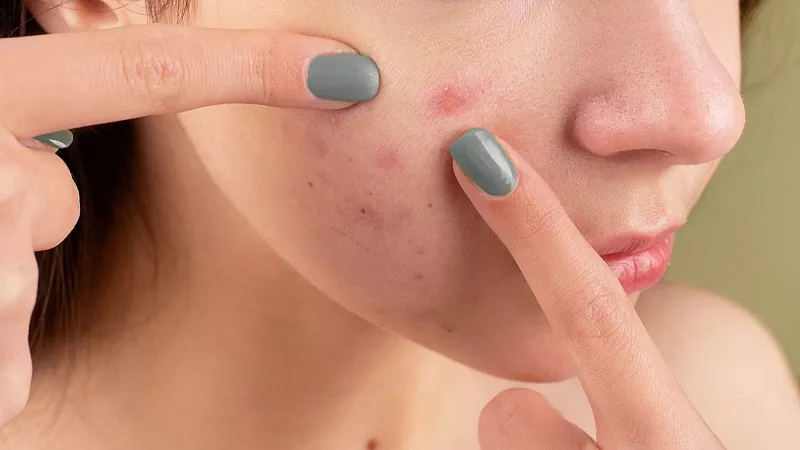Witnessing someone experiencing a mental breakdown can be distressing and challenging, especially if you are unsure how to respond effectively. Mental breakdowns, also known as emotional or nervous breakdowns, are periods of intense emotional distress and an inability to cope with everyday life. As a friend, family member, or bystander, knowing how to provide immediate support and guidance is crucial in helping the individual through this difficult time. In this article, we will explore the signs of a mental breakdown, understanding the underlying causes, and provide practical steps to respond empathetically and effectively.
[inline_related_posts title=”SEE ALSO” title_align=”left” style=”list” number=”3″ align=”none” ids=”752,749,747″ by=”categories” orderby=”rand” order=”DESC” hide_thumb=”no” thumb_right=”no” views=”no” date=”yes” grid_columns=”1″ post_type=”” tax=””]
Recognizing the Signs of a Mental Breakdown
Recognizing the signs of someone experiencing a mental breakdown is crucial for providing timely support and intervention. While the symptoms may vary depending on the individual and the underlying causes, there are some common signs to look out for:
1. Emotional Instability: The person may exhibit intense and unpredictable mood swings. They may seem overwhelmed by emotions, such as sadness, anger, anxiety, or irritability, that are difficult to control.
2. Social Withdrawal: Someone going through a mental breakdown might isolate themselves from friends, family, and social activities they used to enjoy. They may prefer to be alone and avoid interaction.
3. Changes in Sleep Patterns: Insomnia or excessive sleeping can be signs of emotional distress. The person may struggle to fall asleep or stay asleep due to racing thoughts and worries.
4. Appetite Changes: A mental breakdown can lead to significant changes in appetite. The person may experience a loss of appetite or, conversely, engage in emotional eating and consume more than usual.
5. Physical Symptoms: Physical symptoms, such as headaches, body aches, stomach issues, or fatigue, can be common during a mental breakdown.
6. Difficulty Concentrating: The individual may find it challenging to focus or make decisions. Their thoughts may feel scattered, and they might have trouble organizing tasks.
7. Unusual Behavior: Look out for any unusual or out-of-character behavior. This could include reckless actions, sudden anger outbursts, or engaging in self-harming behaviors.
8. Neglecting Responsibilities: During a mental breakdown, a person may neglect their daily responsibilities, such as work, school, or personal hygiene.
9. Intense Anxiety or Panic Attacks: The person may experience overwhelming anxiety or panic attacks, characterized by rapid heartbeat, sweating, trembling, and a feeling of impending doom.
10. Crying Spells: Frequent and uncontrollable crying can be a sign of emotional distress.
11. Feeling Overwhelmed: The individual may express feelings of being overwhelmed, helpless, or hopeless about their situation.
12. Decline in Performance: If the person’s performance at work, school, or in other areas of life declines significantly, it may indicate a mental health issue.
It is important to note that experiencing one or two of these signs does not necessarily mean the person is having a mental breakdown. However, if you notice several of these signs persisting for an extended period, or if you observe a sudden and significant change in their behavior, it may be a cause for concern.
Understanding the Underlying Causes of a Mental Breakdown
Mental breakdowns can result from a combination of factors, including prolonged stress, unresolved trauma, major life changes, relationship issues, or chronic mental health conditions. Understanding the underlying causes can help you provide more empathetic support and guide the individual towards professional help, if needed. Remember to avoid making assumptions or passing judgment during this process.
How to Help Someone in a Mental Breakdown
As a friend, family member, or bystander, knowing how to provide immediate support and guidance is crucial in helping the individual through this difficult time:
1. Staying Calm and Supportive
If you encounter someone experiencing a mental breakdown, remain calm and composed. Your presence should be reassuring and supportive. Encourage open communication without pushing the person to share more than they are comfortable with. Avoid telling them to “snap out of it” or “get over it,” as these statements can be dismissive and harmful.
2. Create a Safe and Comfortable Environment
Find a quiet and private space where the individual feels safe and secure. Reducing external stimuli can help minimize anxiety during the episode. Offer water or tissues, if needed, and ensure they have enough personal space.
3. Listen Actively and Non-Judgmentally
Active listening is a powerful tool in supporting someone during a mental breakdown. Let the person express their feelings and thoughts without interruption or judgment. Acknowledge their emotions and provide validation for their experiences. Sometimes, people just need someone to lend an understanding ear.
4. Offer Practical Help
During a mental breakdown, the person may struggle to complete everyday tasks. Offering practical help, such as preparing a meal, taking care of household chores, or assisting with errands, can alleviate their stress and burden.
5. Avoid Trivializing the Situation
Never downplay or trivialize the individual’s feelings or emotions. Saying phrases like “It’s not that bad” or “Just relax” can be counterproductive and may make them feel more isolated. Instead, acknowledge their feelings and let them know that you care and are there to support them.
6. Encourage Self-Care Techniques
Suggest self-care techniques that might help them cope with the intense emotions, such as deep breathing exercises, mindfulness practices, or taking a walk in nature. Encourage them to engage in activities they enjoy, as these can be grounding and provide temporary relief.
7. Assess the Risk of Harm
It is essential to assess the risk of harm to the individual during a mental breakdown. If you suspect they may harm themselves or others, do not leave them alone. Reach out for professional help immediately. In emergency situations, call a local crisis helpline or emergency services.
8. Know the Limits of Your Support
While offering support is essential, remember that you are not a mental health professional. If the individual’s condition does not improve or worsens, encourage them to seek professional help from a therapist, counselor, or psychiatrist. Offer assistance in finding appropriate resources and accompany them if necessary.
9. Avoid Enabling
Though offering support is crucial, avoid enabling unhealthy behaviors or becoming a constant crutch for the individual. Encourage them to take responsibility for their actions and seek help to address the root causes of their distress.
10. Respect Their Privacy
Respect the person’s privacy and confidentiality. Avoid discussing their situation with others without their consent, as this can further exacerbate their feelings of vulnerability and mistrust.
Self-Care Techniques for Someone in a Mental Breakdown
When experiencing a mental breakdown, it’s essential to prioritize self-care to help manage intense emotions and regain a sense of stability. Here are some self-care techniques that can be beneficial during a mental breakdown:
1. Remove Yourself from Stressful Triggers: If possible, remove yourself from the environment or situation that is triggering the breakdown. Find a quiet and safe space where you can feel more at ease.
2. Practice Deep Breathing: Engage in deep breathing exercises to help calm your nervous system. Focus on slow and deep breaths, inhaling through your nose and exhaling through your mouth.
3. Grounding Techniques: Use grounding techniques to reconnect with the present moment and reduce feelings of dissociation. Focus on your senses by identifying five things you can see, four things you can touch, three things you can hear, two things you can smell, and one thing you can taste.
4. Use Self-Soothing Methods: Use self-soothing methods that work for you, such as wrapping yourself in a cozy blanket, holding onto an object that brings comfort, or using a weighted blanket.
5. Listen to Soothing Music: Listen to calming and soothing music that resonates with your emotions. Music can have a powerful effect on your mood and help you relax.
SEE ALSO: Music as Therapeutic Melody for Mental Health, According to Science
6. Reach Out for Support: Don’t hesitate to reach out to someone you trust for support and understanding. Talking to a friend, family member, or a helpline can provide comfort and reassurance.
7. Practice Mindfulness Meditation: Engage in short mindfulness meditation exercises to help ground yourself and reduce anxiety. Focus on your breath and observe your thoughts without judgment.
8. Use Affirmations: Repeat positive affirmations to counteract negative thoughts and emotions. Remind yourself that it’s okay to feel overwhelmed, and you are strong enough to get through this.
9. Stay Hydrated: Drink water regularly to keep yourself hydrated, as dehydration can exacerbate emotional distress.
10. Take Short Breaks: If you are at work or in a busy environment, take short breaks to step outside or find a quiet space to collect your thoughts.
11. Write in a Journal: Journaling can be a therapeutic way to express your feelings and gain clarity about your emotions.
SEE ALSO: 8 Surprising Powers of Journaling in Enhancing Mental Health, According to Science
12. Progressive Muscle Relaxation: Practice progressive muscle relaxation by tensing and relaxing each muscle group to release physical tension.
13. Use Aromatherapy: Inhale calming scents, such as lavender or chamomile, which can help reduce anxiety and promote relaxation.
14. Avoid Self-Blame: Remind yourself that having a mental breakdown does not make you weak or inadequate. Be compassionate towards yourself and avoid self-blame.
15. Set Realistic Expectations: During this time, it’s crucial to set realistic expectations for yourself and not push yourself beyond your limits.
16. Ask for Professional Help: If you find it challenging to cope or if the mental breakdown persists, consider seeking support from a mental health professional who can provide guidance and therapeutic interventions.
Conclusion
Witnessing someone going through a mental breakdown can be emotionally taxing, but your support can make a significant difference in their journey towards healing and recovery. By recognizing the signs, offering empathy and understanding, and encouraging them to seek professional help, you can be a valuable source of strength during their time of need. Remember that your role is not to fix their problems but to be a compassionate ally as they navigate through this challenging phase. Together, we can foster a society that promotes mental health awareness and support, one step at a time.
[inline_related_posts title=”Related Topics” title_align=”left” style=”list” number=”3″ align=”none” ids=”1272,1187,1016″ by=”categories” orderby=”rand” order=”DESC” hide_thumb=”no” thumb_right=”no” views=”no” date=”yes” grid_columns=”1″ post_type=”” tax=””]
































